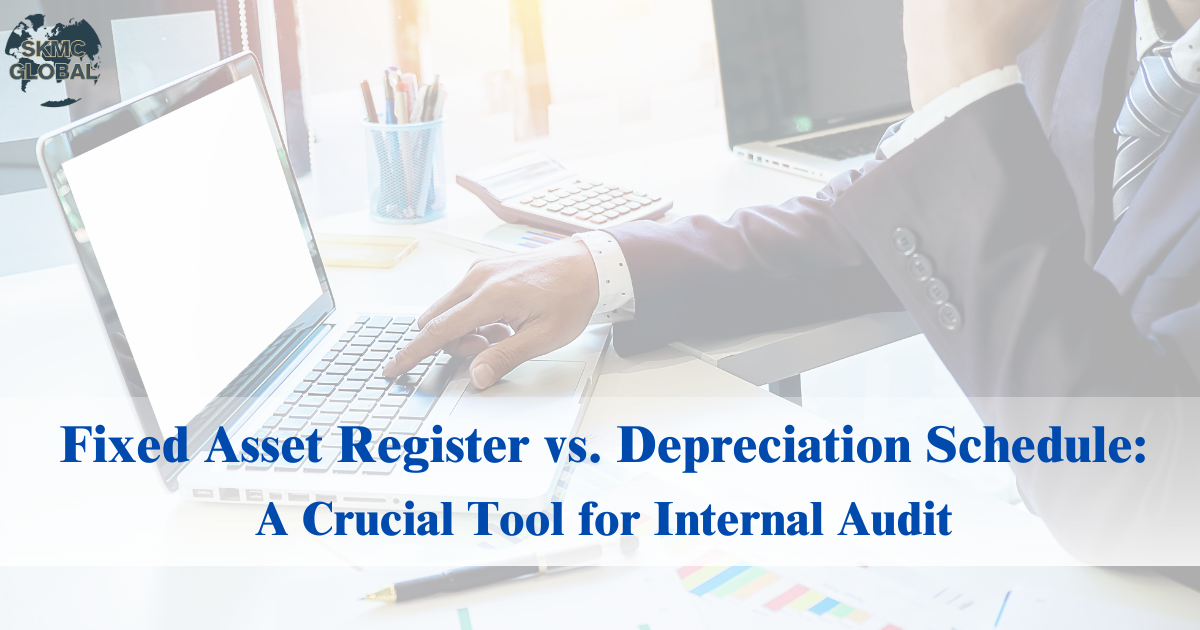
India has become one of the fastest-growing economies, with global corporations eager to expand their operations. One of the many entry methods for foreign businesses is establishing a project office in India. This path is especially applicable for overseas entities that have acquired contracts to implement certain projects in India but do not want to have a permanent business presence. With explicit regulatory standards and organized compliance procedures, Project Office Registration in India allows foreign firms to conduct project-oriented operations without going through the intricacies of having a complete subsidiary setup.
This blog gives a detailed account of establishing a project office in India, covering eligibility, the regulatory regime, compliance, and practical issues.
What is a Project Office?
A project office is a temporary office that a foreign company sets up in order to carry out a particular project in India. It is not to be used for permanent business activities as is the case with subsidiaries or branch offices. The operations of a project office are limited to the project for which it has been created.
Foreign firms tend to opt for establishing a project office in India when they win orders for construction, infrastructure, turnkey projects, or other activities from Indian organizations. This mode assists foreign firms in carrying out work while conforming to regulations in India.
Legal Framework for Project Office Registration in India
The Reserve Bank of India (RBI) is the main regulating body that oversees Project Office Registration in India. Foreign companies can open project offices in accordance with FEMA under certain conditions:
- It must have obtained a contract from an Indian company.
- The project should be financed by direct inward remittance from abroad, or through bilateral/multilateral funding.
- Automated approval if the project is approved by the concerned authority.
Where these requirements are not fulfilled, prior approval from the RBI must be obtained.
Eligibility for Establishing a Project Office in India
Eligibility is an important consideration before establishing a project office in India. The following criteria generally hold good:
- The project is supported by inward remittances or funding organizations such as World Bank, IMF, or bilateral funding institutions.
- The project is contracted by a foreign company by a public sector or government agency in India.
- A term loan is approved by an Indian financial institution or bank for the project.
One of these conditions must be met only after which a foreign company can apply for Project Office Registration in India under the automatic route.
Procedure for Project Office Registration in India
The process of Project Office Registration in India is a mix of regulatory filings and approvals. The step-by-step procedure is listed below:
- Application to Authorized Dealer (AD) Bank
The foreign firm makes an application to its respective AD Bank (an AD Bank authorized by RBI to deal in foreign exchange) with the required documents.
- Documents Required
Certificate of Incorporation of the parent company.
Memorandum & Articles of Association.
Information about the project contract executed in India.
Latest balance sheet of the parent company audited.
Board resolution for the purpose of setting up the project office.
- Verification by AD Bank
The AD Bank checks if the foreign company qualifies for automatic approval. If so, it sends the application to RBI.
- Approval & Registration
On approval, the project office is required to open a Permanent Account Number (PAN) and register with the Registrar of Companies (RoC).
- Bank Account Opening
The project office is required to open a bank account in India, typically a non-interest-bearing current account.
This methodical process ensures compliance in establishing a project office in India.
Authorized Activities of a Project Office
The working of a project office is strictly confined to the implementation of the particular project. Some of the authorized activities are:
- Carrying out project-related operations.
- Incurs expenses directly related to the project.
- Repatriation of excess funds upon project completion, as per compliance.
A project office will not be allowed to carry on commercial trading, retail business, or unrelated business. This limitation differentiates Project Office Registration in India from the branch or liaison office structures.
Compliance Conditions for Project Offices
Compliance is a part of setting up a project office in India. The following responsibilities have to be fulfilled:
- Annual Filings: Annual activity certificates are to be filed by project offices with the RBI, attested by a chartered accountant.
- Taxation: The income generated by the project office is tax in India according to domestic law and Double Taxation Avoidance Agreements (DTAA) effective thereto.
- Statutory Registrations: GST, PF, and other registrations may be required based on the project's nature.
- Closure Formalities: Upon project completion, closure entails repatriation of funds, making a request for closure to the AD Bank, and filing with the RoC.
These compliance procedures render it necessary for companies to hire a professional advisor or a business consulting firm in order to steer clear of penalties.
Taxation of Project Offices in India
One of the most important things to do when establishing a project office in India is to know the tax treatment. A project office is considered to be a permanent establishment (PE) of the foreign firm in India. Consequently:
- The project income that can be attributed to the project is taxable in India.
- Transfer pricing rules will apply if the project has transactions between related parties.
- Double Taxation Avoidance Agreements can be utilized to obtain relief for double taxation.
A transparent comprehension of taxation facilitates smooth operations and reduces conflicts with tax authorities.
Cases Where a Foreign Firm Opens a Project Office in India
A foreign firm may establish a project office in India when it has obtained a particular contract from an Indian company. Under the guidelines issued by the Reserve Bank of India (RBI), the office is normally permitted under the following cases:
Execution of a Contract
If a foreign firm has won a project in India from an Indian firm or government department, it can establish a project office to execute associated activities.
Example: A Japanese construction firm is commissioned to construct a metro rail line in Mumbai. To implement this project economically, the firm establishes a project office in India.
Funding by International or Bilateral Agencies
If a project is financed directly by international or bilateral agencies such as World Bank, Asian Development Bank, or Japan International Cooperation Agency, a foreign firm can establish a project office to oversee and control the implementation.
Example: European engineering company is given a World Bank-financed project of water treatment plants in rural India. The company establishes a project office for implementing coordination.
Project Cleared by Appropriate Authority
If the project has already been approved by the concerned ministry or authority of the Government of India, the foreign firm can open a project office to operate that specific project.
Example: A South Korean shipyard company gets government sanction to construct port facilities in Gujarat and opens a project office to conduct business.
Contract Obtained by an Indian Firm, Financed by Foreign Remittances
A project office can also be set up if the Indian contract is being funded by inward remittances from overseas.
Example: An Indian firm obtains a massive IT implementation contract with funds provided by its American parent company. The parent establishes a project office in India to arrange for technical implementation.
Practical Insights and Best Practices
Foreign firms thinking of establishing a project office in India ought to bear in mind the following best practices:
- Carry out detailed feasibility study prior to making an application.
- Ensure all project contracts are properly documented with funding details.
- Have local representatives to ensure easy coordination with banks and regulators.
- Ensure proper accounting records to make auditing and taxation easier.
- Plan closure well in advance once the project is almost complete.
Foreign firms can ensure maximum efficiency and compliance with Indian laws by applying these best practices.
Conclusion
Setting up a project office in India offers foreign companies an efficient way to execute specific projects without establishing a permanent business presence. With well-defined guidelines under FEMA and the RBI’s oversight, Project Office Registration in India is a structured process that allows smooth project execution. While there are compliance requirements and certain challenges, the advantages often outweigh them for project-based assignments.
The involvement of professional consultants will ensure smooth management of legal, tax, and regulatory issues. For overseas companies wishing to enter India for limited project work, opening a project office in India continues to be one of the most pragmatic and cost-effective modes of entry.
Recent Posts
-
 SEBI’s New Co-Investment Framework for AIFs: An ...
Jan 14,2026
SEBI’s New Co-Investment Framework for AIFs: An ...
Jan 14,2026
-
 Incorporation of Company in Saudi Arabia...
Jan 05,2026
Incorporation of Company in Saudi Arabia...
Jan 05,2026
-
 Changes in Financial Reporting as per IFRS 18...
Dec 31,2025
Changes in Financial Reporting as per IFRS 18...
Dec 31,2025
-
 Digital Personal Data Protection Act Implementatio...
Dec 30,2025
Digital Personal Data Protection Act Implementatio...
Dec 30,2025
-
 How to setup a Semiconductor Unit in Gujarat...
Dec 26,2025
How to setup a Semiconductor Unit in Gujarat...
Dec 26,2025
-
 Process of Setting Up a Gratuity Fund Trust in Ind...
Dec 18,2025
Process of Setting Up a Gratuity Fund Trust in Ind...
Dec 18,2025
-
 Corporate Insolvency Resolution Process (CIRP) und...
Dec 17,2025
Corporate Insolvency Resolution Process (CIRP) und...
Dec 17,2025
-
 Closure of a company in India...
Dec 12,2025
Closure of a company in India...
Dec 12,2025
-
 Importance of Black Money Act 2015...
Dec 11,2025
Importance of Black Money Act 2015...
Dec 11,2025
-
 What are undisclosed assets and income under Black...
Dec 08,2025
What are undisclosed assets and income under Black...
Dec 08,2025
-
 Importance of PIMS certification for Importers in ...
Dec 06,2025
Importance of PIMS certification for Importers in ...
Dec 06,2025
-
 Incorporation of Company in UAE...
Dec 03,2025
Incorporation of Company in UAE...
Dec 03,2025
-
 Legal Entity Identifier LEI - Purpose and Applicab...
Dec 01,2025
Legal Entity Identifier LEI - Purpose and Applicab...
Dec 01,2025
-
 Implementation of New Labour Codes 2025...
Nov 29,2025
Implementation of New Labour Codes 2025...
Nov 29,2025
-
 A Step-by-Step Guide to a Smooth Payroll Outsourci...
Nov 28,2025
A Step-by-Step Guide to a Smooth Payroll Outsourci...
Nov 28,2025
-
 PESO Certification in India...
Nov 26,2025
PESO Certification in India...
Nov 26,2025
-
 Family Trusts for NRIs- Managing Indian Assets fro...
Nov 24,2025
Family Trusts for NRIs- Managing Indian Assets fro...
Nov 24,2025
-
 Decoding Disclosures: Section 184 of Companies Act...
Nov 21,2025
Decoding Disclosures: Section 184 of Companies Act...
Nov 21,2025
-
 All you want to know about Recycling business in I...
Nov 20,2025
All you want to know about Recycling business in I...
Nov 20,2025
-
 What is Seed Fund Scheme and its relevance for Sta...
Nov 19,2025
What is Seed Fund Scheme and its relevance for Sta...
Nov 19,2025
-
 Incorporation of Company in Singapore...
Nov 18,2025
Incorporation of Company in Singapore...
Nov 18,2025
-
 How to upgrade your AEO T2 certification to AEO T3...
Nov 15,2025
How to upgrade your AEO T2 certification to AEO T3...
Nov 15,2025
-
 What is the relevance of APEDA Registration and it...
Nov 14,2025
What is the relevance of APEDA Registration and it...
Nov 14,2025
-
 Applicability of Indian Accounting Standards for c...
Nov 11,2025
Applicability of Indian Accounting Standards for c...
Nov 11,2025
-
 Public vs. Private Trust: key Differences in Regis...
Oct 28,2025
Public vs. Private Trust: key Differences in Regis...
Oct 28,2025
-
 Donation and Foreign Contributions to Trusts in In...
Oct 23,2025
Donation and Foreign Contributions to Trusts in In...
Oct 23,2025
-
 Redeemable Preference Shares as a Financial Tool...
Oct 22,2025
Redeemable Preference Shares as a Financial Tool...
Oct 22,2025
-
 STPI Unit and Non-STPI Unit...
Oct 16,2025
STPI Unit and Non-STPI Unit...
Oct 16,2025
-
 Country-by-Country Reporting (CbCR) and Its Evolvi...
Oct 09,2025
Country-by-Country Reporting (CbCR) and Its Evolvi...
Oct 09,2025
-
 What is Free Trade Agreement and Certificate of Or...
Oct 08,2025
What is Free Trade Agreement and Certificate of Or...
Oct 08,2025
-
 What is the relevance of status holders certificat...
Oct 06,2025
What is the relevance of status holders certificat...
Oct 06,2025
-
 Redemption of Advance Authorization under Foreign ...
Oct 04,2025
Redemption of Advance Authorization under Foreign ...
Oct 04,2025
-
 What is provisional assessment of Bill of Entries ...
Sep 29,2025
What is provisional assessment of Bill of Entries ...
Sep 29,2025
-
 Redemption of EPCG License...
Sep 26,2025
Redemption of EPCG License...
Sep 26,2025
-
 MOOWR (Manufacturing and Other Operations in Wareh...
Sep 24,2025
MOOWR (Manufacturing and Other Operations in Wareh...
Sep 24,2025
-
 Procedure to Apply SCOMET License...
Sep 22,2025
Procedure to Apply SCOMET License...
Sep 22,2025
-
 Landscape of Semiconductor Industry while Doing Bu...
Sep 18,2025
Landscape of Semiconductor Industry while Doing Bu...
Sep 18,2025
-
 The Hidden Costs of In-House Accounting v/s Outsou...
Sep 17,2025
The Hidden Costs of In-House Accounting v/s Outsou...
Sep 17,2025
-
 TDS on sale of immovable property by an nri...
Sep 10,2025
TDS on sale of immovable property by an nri...
Sep 10,2025
-
 Setting up a Project Office in India...
Sep 08,2025
Setting up a Project Office in India...
Sep 08,2025
-
 Tax Implication for Transferring NRO Funds to NRE ...
Sep 05,2025
Tax Implication for Transferring NRO Funds to NRE ...
Sep 05,2025
-
 How outsourcing CFO services helps the corporates ...
Aug 27,2025
How outsourcing CFO services helps the corporates ...
Aug 27,2025
-
 Why a Periodical Cash Flow Statement is Necessary ...
Aug 26,2025
Why a Periodical Cash Flow Statement is Necessary ...
Aug 26,2025
-
 What is FATCA and CRS reporting and its difference...
Aug 22,2025
What is FATCA and CRS reporting and its difference...
Aug 22,2025
-
 What are unclaimed TDS Credits and how to claim it...
Aug 21,2025
What are unclaimed TDS Credits and how to claim it...
Aug 21,2025
-
 Digital Taxation is reshaping Tax Nexus Between Ju...
Aug 20,2025
Digital Taxation is reshaping Tax Nexus Between Ju...
Aug 20,2025
-
 Procedure to Take PF Registration and Its Complian...
Aug 18,2025
Procedure to Take PF Registration and Its Complian...
Aug 18,2025
-
 Procedure to take PSARA License...
Aug 11,2025
Procedure to take PSARA License...
Aug 11,2025
-
 Mandatory factory license while setting up manufac...
Aug 08,2025
Mandatory factory license while setting up manufac...
Aug 08,2025
-
 Procedure for obtaining NBFC Registration in India...
Aug 04,2025
Procedure for obtaining NBFC Registration in India...
Aug 04,2025
-
 FSSAI License registration for Food Business...
Jul 14,2025
FSSAI License registration for Food Business...
Jul 14,2025
-
 How Management Information System (MIS) reporting ...
Jul 11,2025
How Management Information System (MIS) reporting ...
Jul 11,2025
-
 IFRS 9 impairment- A complete guide...
Jul 12,2025
IFRS 9 impairment- A complete guide...
Jul 12,2025
-
 Why most of the companies are shifting to hr and p...
Jul 10,2025
Why most of the companies are shifting to hr and p...
Jul 10,2025
-
 A complete guide on valuation of shares...
Jul 10,2025
A complete guide on valuation of shares...
Jul 10,2025
-
 BIS registration for foreign manufacturer...
Jul 09,2025
BIS registration for foreign manufacturer...
Jul 09,2025
-
 Understanding the Scope of the Shops and Establish...
Jul 08,2025
Understanding the Scope of the Shops and Establish...
Jul 08,2025
-
 Coso framework: Complete guide on internal control...
Jun 26,2025
Coso framework: Complete guide on internal control...
Jun 26,2025
-
 Components and Process for Conducting Internal Aud...
Jun 25,2025
Components and Process for Conducting Internal Aud...
Jun 25,2025
-
 What is ICFR and Why It is Important for Businesse...
Jun 24,2025
What is ICFR and Why It is Important for Businesse...
Jun 24,2025
-
 Understanding WPC Certification and its applicabil...
Jun 23,2025
Understanding WPC Certification and its applicabil...
Jun 23,2025
-
 Procedure to take EPR registration for battery was...
Jun 21,2025
Procedure to take EPR registration for battery was...
Jun 21,2025
-
 3PL Logistics...
Jun 19,2025
3PL Logistics...
Jun 19,2025
-
 What is E-Waste and role of EPR in Waste Managemen...
Jun 17,2025
What is E-Waste and role of EPR in Waste Managemen...
Jun 17,2025
-
 M&A Due Diligence in India: How to Spot Target Com...
Jun 16,2025
M&A Due Diligence in India: How to Spot Target Com...
Jun 16,2025
-
 BIS crs certification for electronic products...
Jun 12,2025
BIS crs certification for electronic products...
Jun 12,2025
-
 All you need to know about WPC ETA certification f...
Jun 11,2025
All you need to know about WPC ETA certification f...
Jun 11,2025
-
 What is CDSCO Registration under The Drugs & Cosme...
Jun 10,2025
What is CDSCO Registration under The Drugs & Cosme...
Jun 10,2025
-
 Procedure to Take CDSCO Registration in India: A C...
Jun 09,2025
Procedure to Take CDSCO Registration in India: A C...
Jun 09,2025
-
 All You Need to Know About AERB Registration...
Jun 07,2025
All You Need to Know About AERB Registration...
Jun 07,2025
-
 Understanding POSH (Prevention of Sexual Harassmen...
Jun 03,2025
Understanding POSH (Prevention of Sexual Harassmen...
Jun 03,2025
-
 Chartered Accountant's role in financial managemen...
May 23,2025
Chartered Accountant's role in financial managemen...
May 23,2025
-
 5 Things to keep in your mind while running payrol...
May 17,2025
5 Things to keep in your mind while running payrol...
May 17,2025
-
 Why BIS Certification is Crucial for Importers and...
May 15,2025
Why BIS Certification is Crucial for Importers and...
May 15,2025
-
 Top 7 Reasons Indian Entrepreneurs Are Switching t...
May 07,2025
Top 7 Reasons Indian Entrepreneurs Are Switching t...
May 07,2025
-
 Incorporation of Company in Japan...
Apr 24,2025
Incorporation of Company in Japan...
Apr 24,2025
-
 How to set up a Representative Office in Singapore...
Apr 14,2025
How to set up a Representative Office in Singapore...
Apr 14,2025
-
 BIS certificate for medical equipments...
Apr 09,2025
BIS certificate for medical equipments...
Apr 09,2025
-
 Fixed Asset Register v/s Depreciation Schedule: A ...
Apr 02,2025
Fixed Asset Register v/s Depreciation Schedule: A ...
Apr 02,2025
-
 Role of AI in Accounting...
Mar 26,2025
Role of AI in Accounting...
Mar 26,2025
-
 Capital Structure & its Impact on Profitability...
Feb 21,2025
Capital Structure & its Impact on Profitability...
Feb 21,2025
-
 Union Budget 2025...
Feb 01,2025
Union Budget 2025...
Feb 01,2025
-
 What is EPR in Plastic waste Management? ...
Jul 12,2022
What is EPR in Plastic waste Management? ...
Jul 12,2022
-
 Lithium-ion Battery Recycling Plant Setup in India...
May 10,2022
Lithium-ion Battery Recycling Plant Setup in India...
May 10,2022
-
 Setting up E-waste Recycling Plant Setup...
Jan 12,2022
Setting up E-waste Recycling Plant Setup...
Jan 12,2022
-
 Applicability of Labour Laws in India...
Jul 15,2021
Applicability of Labour Laws in India...
Jul 15,2021
-
 Basis to Outsource Finance and Accounting Services...
Oct 31,2021
Basis to Outsource Finance and Accounting Services...
Oct 31,2021
